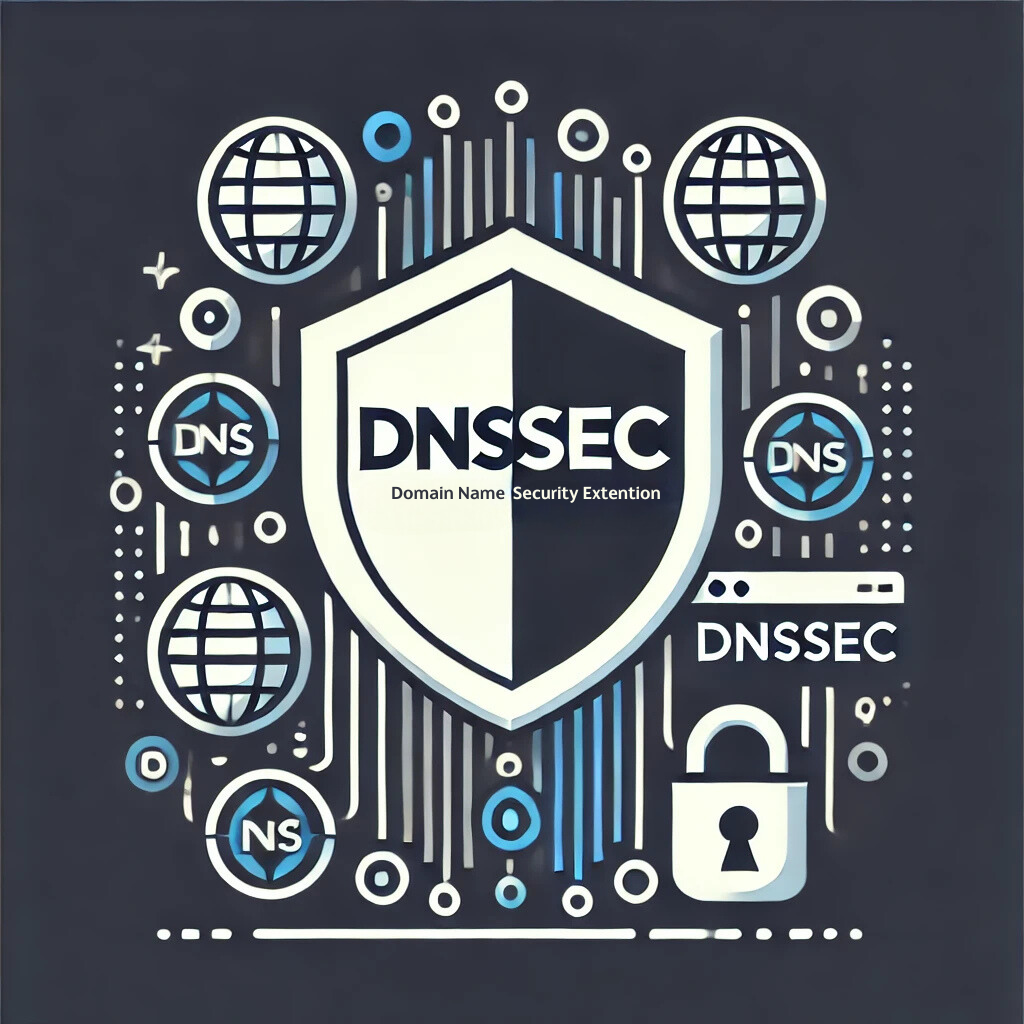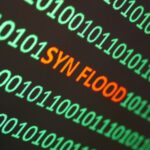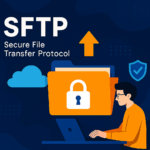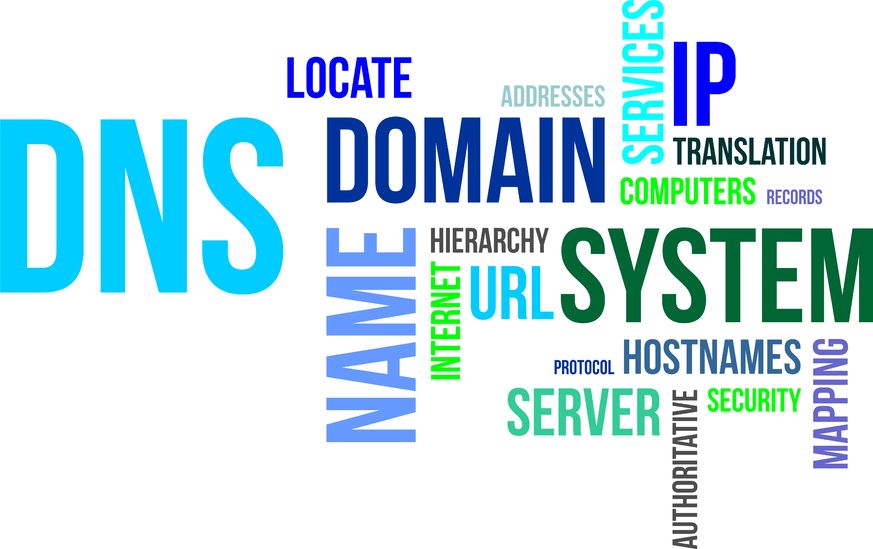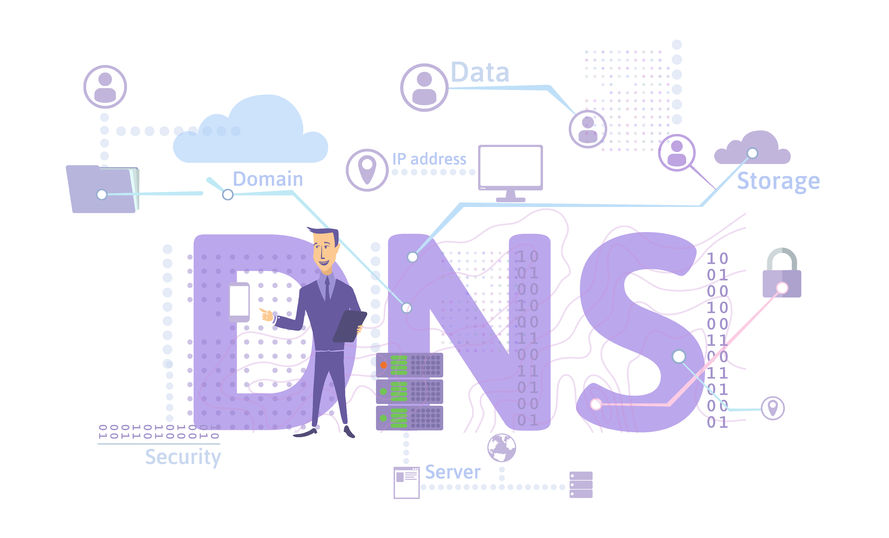The Domain Name System Security Extension (DNSSEC) is a powerful tool designed to protect both you and your clients from DNS spoofing attacks. It adds an additional layer of verification and ensures that your DNS queries are not intercepted by malicious actors and redirected to fraudulent IP addresses.
Table of Contents
What is DNSSEC?
DNSSEC is a security extension that uses a combination of public and private keys to sign data and verify the authoritative server.
DNSSEC is a cryptographic solution for domain authentication.
With it, even if a recursive server was poisoned by hackers, it won’t send the visitors to a shady website where their personal data and bank information can be stolen. The DNSSEC must be applied at each step, from the root zone to the domain. The root zone will have a key for the .com and the .com will have for the EXAMPLE.com. DNSSEC is a chain of trust that needs to be verified on each point.
How DNS Works and the Role of DNSSEC
We have already talked about how DNS works. Briefly explained, it is a system that facilitates our lives by translating domain names to their IP addresses. This way, visitors don’t need to remember IP addresses and just write the name of the domain. In the DNS, users’ requests go through different recursive servers until it reaches the root zone where the IP addresses are stored.
However, when DNS was created, security wasn’t a major concern. This left DNS vulnerable to attacks such as DNS spoofing (or cache poisoning), where a hacker manipulates DNS records to redirect users to malicious sites. DNSSEC was developed to secure the DNS without completely rebuilding its core architecture.
The Importance of DNS Security
The DNS Security should not be neglected. Especially when we think about how many people connect their devices and use them on unsecured public Wi-Fi networks. Their DNS traffic could go to a poisoned DNS resolver that has modified DNS records. A modified DNS record could lead to a similar or exactly the same looking site that is there to get the person’s personal data, including bank data. The victim won’t even notice there was a problem until it is too late and all thanks to the weak DNS security that a non-DNSSEC solution offers by default.
When you apply DNSSEC for your domain, all those users who are using public Wi-Fi networks or private ones will be safe from such scams. Their web browser will recognize the DNS record that is not signed correctly with DNSSEC, and it will drop it.
The DNSSEC is proof of original and non-manipulated DNS records that secures DNS and fixes its flaws. It is cryptographically protected and secure.
Ready for ultra-fast DNS service? Click to register and see the difference!Experience Industry-Leading DNS Speed with ClouDNS!
How does DNSSEC work?
DNSSEC works by adding digital signatures to DNS records using public-key cryptography. Here’s a simplified breakdown of how it works:
- Public and Private Keys: DNSSEC uses a pair of cryptographic keys – one public and one private. The private key is used to generate digital signatures for DNS data, and the public key is used by DNS resolvers to verify that the signatures are valid.
- Signing DNS Records: When DNSSEC is enabled for a domain, its DNS records are digitally signed using the domain’s private key. This means that if anyone tries to tamper with the records, the signature will no longer match, and the change can be detected.
- Chain of Trust: DNSSEC uses a hierarchical trust model. On top of this trust is the DNS root zone, which is managed by trusted organizations. Each level of the DNS hierarchy (from the root to TLDs like .com, down to individual domains) is responsible for signing the records at the next level down. For example, if you own a domain like “example.com”, your domain’s signatures are verified by the “.com” zone, which in turn is verified by the root zone.
- Resolvers and Validation: When a DNS resolver queries a DNSSEC-enabled domain, it not only receives the usual DNS data (such as the IP address) but also the associated digital signatures. The resolver then uses the public key associated with the domain to verify the signature. If the signature is valid, the resolver can be confident that the DNS data hasn’t been modified.
Key Components of DNSSEC
There are a few critical terms and components to understand when discussing DNSSEC:
- DNS Record Types: DNSSEC adds several new DNS records to achieve signature validation.
- RRSIG: The digital signature associated with a particular set of DNS records.
- DNSKEY: This record contains the public key used to verify RRSIGs.
- DS Record: A delegation signer record that authenticates the connection between a domain’s DNS zone and its parent zone. It contains a hash of the DNSKEY record, which allows resolvers to verify the authenticity of DNS responses and ensure the integrity of the domain’s DNS data.
- NSEC/NSEC3: It is a pointer to the next secure record name in the zone.
- Resource Record sets (RRsets): They gather the same type of DNS records, such as A, AAAA, and MX. The RRsets help to reduce the complication of verifying single records.
- Zone-Signing Keys (ZSK): These keys are used by the DNS zone operator to sign individual DNS records (RRsets) within the zone. The private ZSK signs the RRsets and saves them in the form of RRSIG records. The public ZSK is published in the form of DNSKEY to validate these signatures.
- Key-Signing Keys (KSK): The KSK is used to sign the DNSKEY record, which includes the public ZSK. The private KSK signs both the KSK and the ZSK, ensuring trust in the zone’s cryptographic keys.
What does DNSSEC mean for the end users?
Enabling DNSSEC will guarantee that the users will access the right website, not a fake copy. It doesn’t remove the need of a SSL certificate for data encryption and further protection of users’ data, but it secures the otherwise unsecured DNS.
Who Needs DNSSEC?
The simple answer is anyone with a domain name! However, some types of websites benefit the most from this solution:
- eCommerce Sites: Protecting customers’ financial information and preventing phishing attacks is critical. DNSSEC ensures that users connect to the correct server and are not misled by a fake site.
- Financial Institutions: Online banking services are frequent targets of DNS attacks, especially due to the sensitive nature of their transactions. Implementing DNSSEC is crucial to protecting both customers and the institution from fraudulent activities.
- Healthcare Organizations: With the rise of online health services and medical records, healthcare websites need to ensure the privacy and accuracy of patient data. DNSSEC adds a layer of protection essential for safeguarding personal health information.
- Enterprises: Large corporations often have multiple domains, subdomains, and services hosted online. DNSSEC prevents DNS hijacking that could damage the company’s reputation and customer trust.
Even if you run a small blog or a simple business website, this service ensures your domain won’t be exploited for malicious purposes. It’s a valuable tool for maintaining the security and integrity of any online property.
ClouDNS and DNSSEC
ClouDNS offers DNSSEC both for Primary and Secondary DNS for each of our paid DNS plans. The DNSSEC is compatible with non-DNSSEC resolvers too. This means that if you enable it, The DNS will continue to function without problems even if the resolver(s) doesn’t support DNSSEC. Having a secure DNS is easy.
Benefits
Some of the key benefits include the following:
- Improved Security: It ensures the authenticity and integrity of DNS responses by digitally signing DNS data, protecting against attacks like DNS spoofing and cache poisoning.
- Data Integrity: It guarantees that the DNS data has not been tampered with during transmission, ensuring reliable communication.
- Trust Establishment: DNSSEC creates a chain of trust from the root DNS servers down to individual domains, enhancing overall trust in internet services.
- Prevents Redirection: It helps prevent users from being unknowingly redirected to malicious websites by ensuring the validity of DNS responses.
Cons of DNSSEC
As you could guess, there are some negatives with it too. Apply it correctly will create more records. Furthermore, it will increase the size of the DNS responses.
Still we recommend the use of DNSSEC. It is not hard to apply, it will provide an extra security and save you many problems with your clients.
Handling DNS Security extension Failures and Misconfigurations
Despite its security benefits, DNSSEC can introduce operational challenges. Common issues include:
- Expired RRSIG records, causing validation to fail
- Missing or mismatched DS records at the parent zone
- Broken chain of trust due to incorrect key rollovers
- Algorithm mismatches between zones and resolvers
To mitigate these problems, DNS administrators should implement continuous monitoring, automate key rollovers where possible, and test configurations before deployment. Many DNS providers, including ClouDNS, offer DNSSEC health checks and alerts to detect and resolve issues proactively.
Conclusion
DNSSEC plays a vital role in keeping the internet secure. As cyber threats like DNS spoofing, man-in-the-middle attacks, and cache poisoning are becoming common, protecting your DNS is essential. By using this service, you protect the integrity of your domain and ensure that your users can always reach your legitimate website. No matter the size of your online presence, whether it’s a personal blog or a large company, DNSSEC offers an important layer of protection that helps keep your domain secure and trustworthy.
